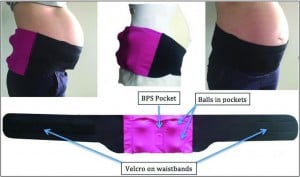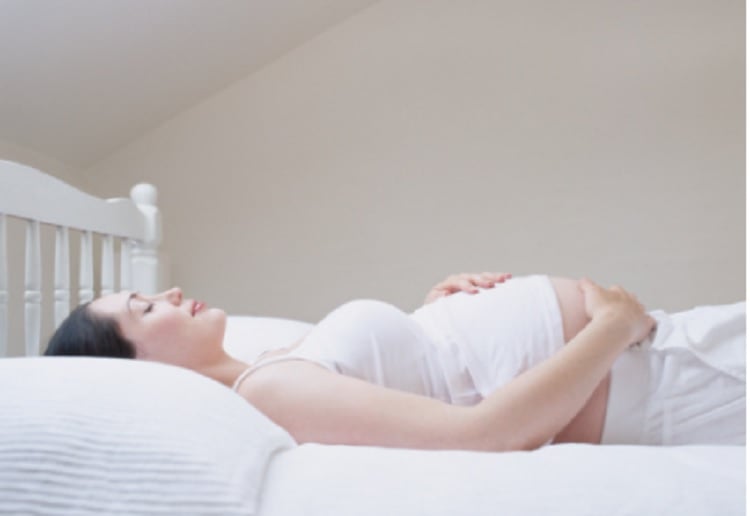We are told to avoid sleeping on our back during pregnancy so that you’re not reducing the blood flow to the placenta and ultimately the baby. But how should we best sleep?
We also know that rolling onto your back is a hard thing to avoid but one study has come up with the revelation that wearing a waistband style sleeping device can significantly reduce the time expecting mothers spend sleeping on their back – which is currently about 25 percent of total sleep time, reports Yahoo 7.
The study looked at the maternal heart rate, blood oxygen saturation and sleep and breathing parameters for 25 healthy pregnant women between 23 and 38 weeks of gestation.
“Our findings suggest that women can comfortably sleep wearing a device around their waist that effectively stops them from sleeping on their back,” according to principal investigator Jane Warland from Adelaide.
“Wearing a device that minimizes back sleep, and which is comfortable and doesn’t impact the mother’s sleep length or quality, may be a simple way to reduce stillbirth incidence, especially if the mother is at increased risk due to other factors,” Jane further said of the study recorded in the Journal of Clinical Sleep Medicine.
The PrenaBelt, used for this study, works off the principles of positional therapy to reduce supine sleep with the use of balls that sit tucked into the back to the belt preventing people from rolling onto them in their sleep.

The results found the time spent sleeping supine (on your back) reduced from 48.3 minutes during the control night to 28.5 minutes during the intervention night.
Researchers are now looking at doing further studies to support their findings.
The Best Position
Doctors and midwives recommend sleeping on your left hand side. This position prevents the heavy uterus putting pressure on your liver, and continues to allow the baby to receive the right amount of nutrients and oxygen through the placenta. In fact, not only does this position not restrict blood flow, it actually improves circulation which means your body won’t have to work as hard to ensure you have optimal blood flow for you and your baby.
Research from the University of Auckland has shown women who sleep on their backs in the last months of pregnancy are 3.7 times more likely to have a late stillbirth – read more on that here.
Share your comments below




















-

-
-
Ellen said
- 06 Sep 2018

-

-
-
Blossom said
- 05 Sep 2018
-

-
-
ashna9 said
- 05 Sep 2018
Post a comment7:39 am
8:37 pm
6:01 pm
To post a review/comment please join us or login so we can allocate your points.